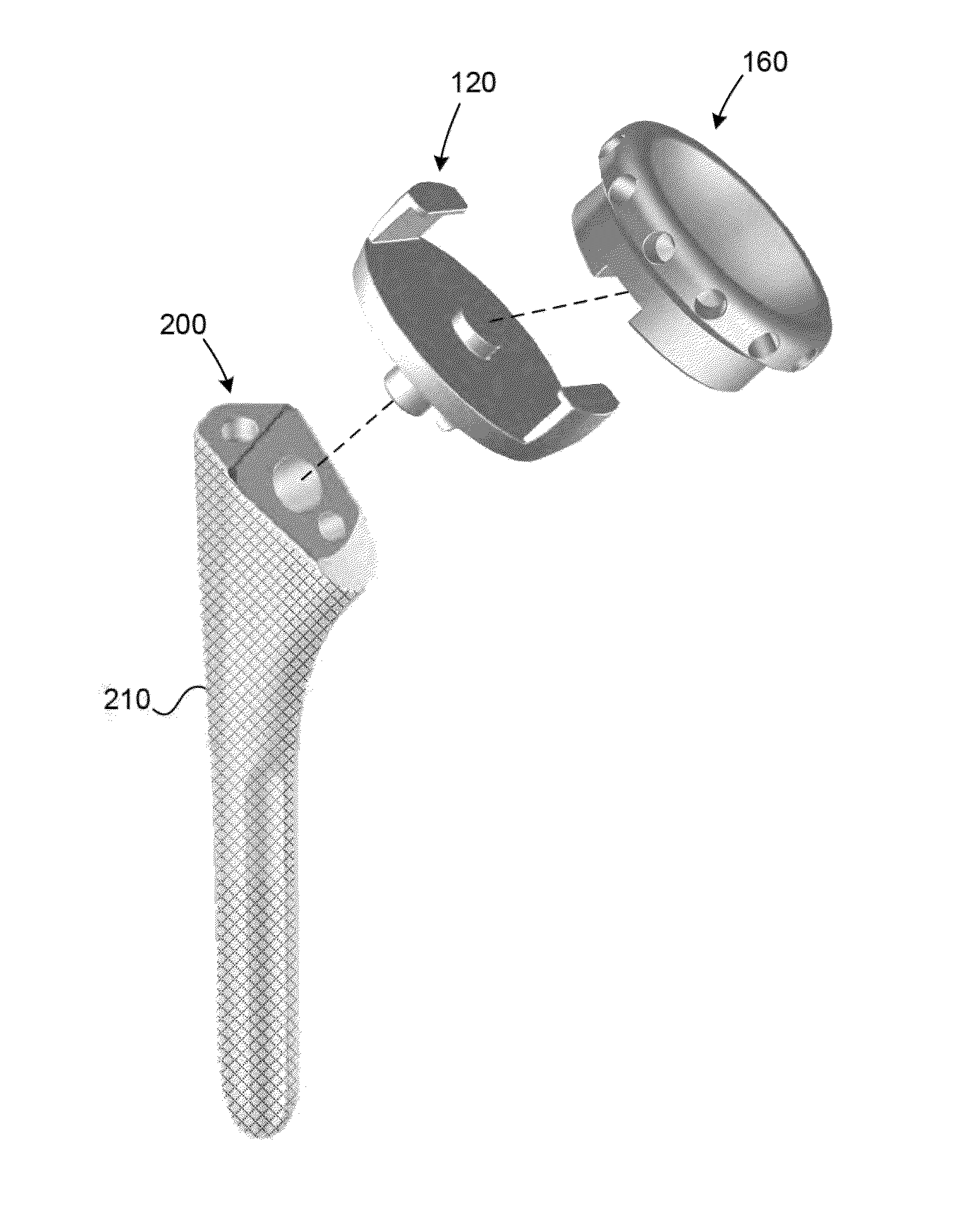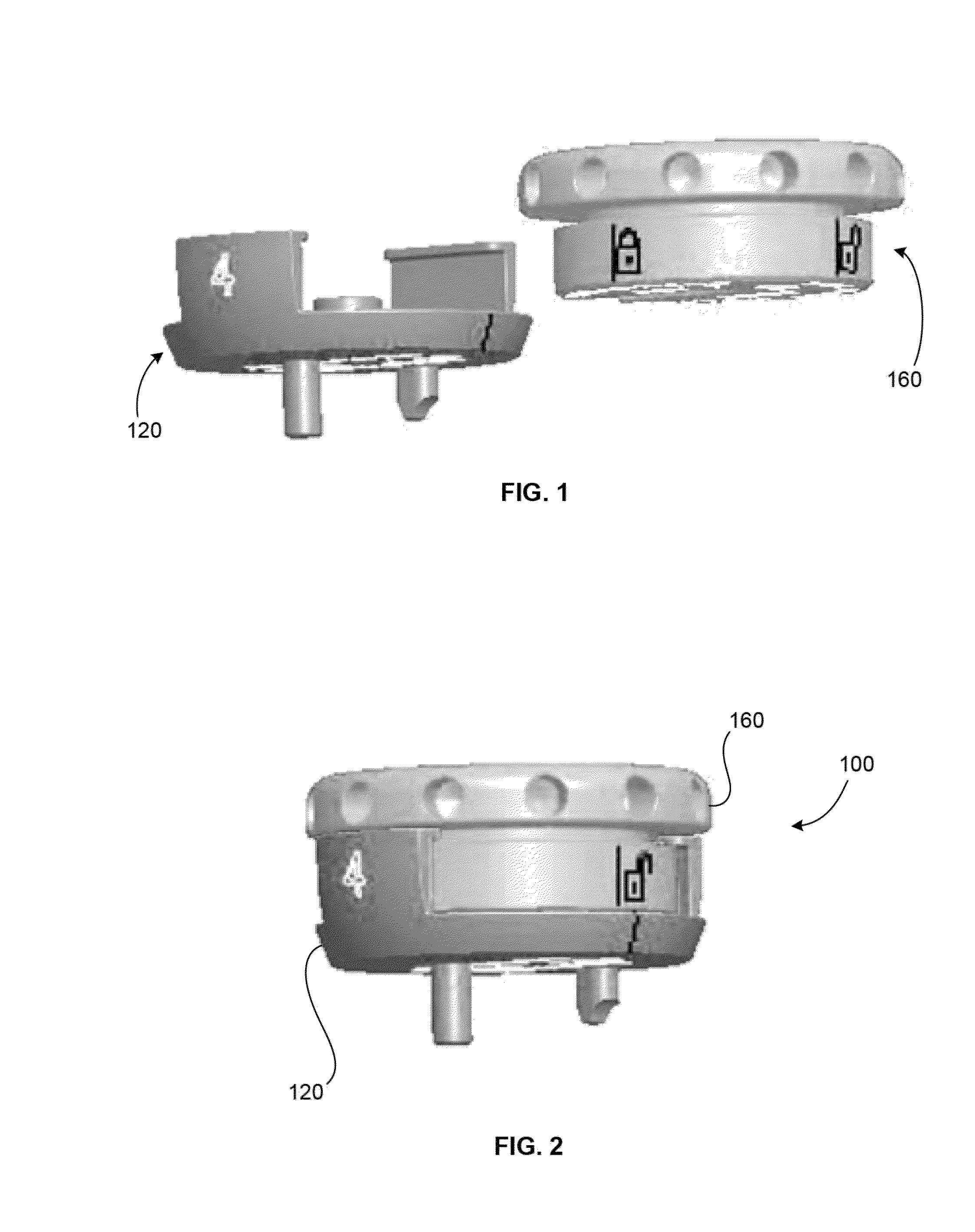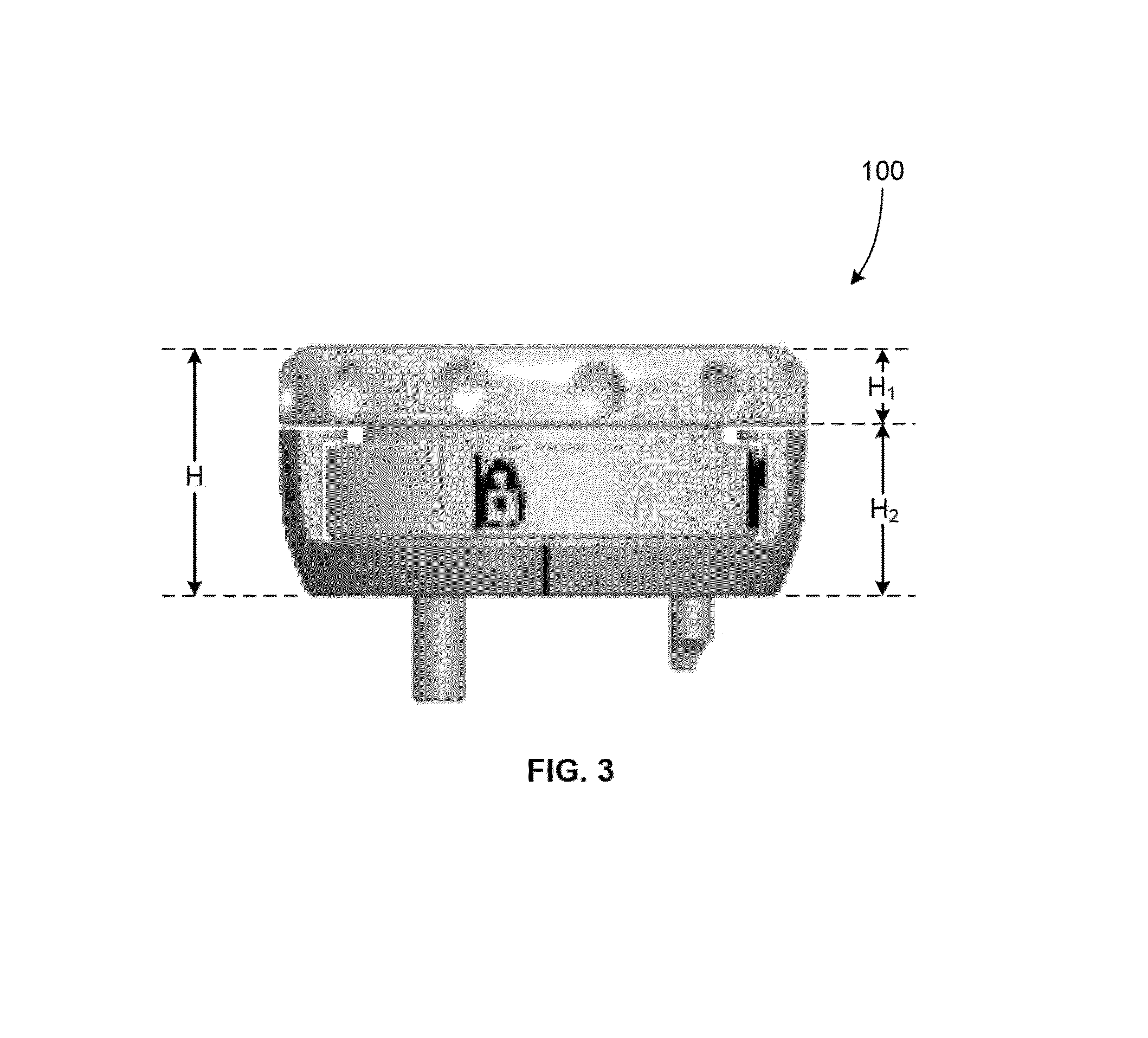Lateral entry insert for cup trial
a cup and insert technology, applied in the field of shoulder trials, can solve problems such as problems such as achieving appropriate tensioning during rsa, and achieve the effect of increasing joint tension and reducing and dislocating joints
- Summary
- Abstract
- Description
- Claims
- Application Information
AI Technical Summary
Benefits of technology
Problems solved by technology
Method used
Image
Examples
Embodiment Construction
[0042]Referring to FIGS. 1-3, there is shown an embodiment of a trial assembly of the present invention designated generally by reference numeral 100. As shown in those figures, trial assembly 100 includes a trial cup 120 and a trial insert 160.
[0043]FIGS. 4A-D show an embodiment of trial cup 120. As shown in these figures, trial cup 120 includes a distal end surface 122 and a proximal end surface 124. Proximal end surface 124 includes first and second flanges 126, 128 and a centering member 130 protruding outwardly therefrom. Proximal end surface 124 preferably includes a marker 144 thereon as shown in FIG. 4D.
[0044]First and second flanges 126, 128 preferably extend outwardly from at least a portion of an outer circumference 136 of proximal end surface 124 of trial cup 120. First and second flanges 126, 128 include an engagement member 132, 134 respectively. Engagement members 132, 134 preferably extend outwardly from inner surfaces of first and second flanges 126, 128. Engagement...
PUM
 Login to View More
Login to View More Abstract
Description
Claims
Application Information
 Login to View More
Login to View More - R&D
- Intellectual Property
- Life Sciences
- Materials
- Tech Scout
- Unparalleled Data Quality
- Higher Quality Content
- 60% Fewer Hallucinations
Browse by: Latest US Patents, China's latest patents, Technical Efficacy Thesaurus, Application Domain, Technology Topic, Popular Technical Reports.
© 2025 PatSnap. All rights reserved.Legal|Privacy policy|Modern Slavery Act Transparency Statement|Sitemap|About US| Contact US: help@patsnap.com



